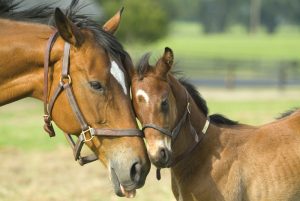Sport and Leisure
Hunting
Fox hunting has been illegal in England, Wales and Scotland for over 15 years, and yet evidence shows that hunts up and down the country continue to flout the law and encourage dogs to rip foxes and other animals apart for their entertainment. Mink and stag hunting have also been banned, as has hare coursing, but according to the League Against Cruel Sports, illegal hare coursing still takes place and accounts for 27 per cent of UK wildlife crime.
‘Gamebird’ shooting
Every year the recreational shooting industry breeds around 50 million pheasants and partridges so that people can blast them out of the skies, in addition to around one million ducks. Vast swathes of moorland are burnt and purged of native animals – including endangered and protected species – in order to encourage grouse to breed. These birds are then blasted out of the sky for ‘fun’.
See our shooting campaign section for more information.
Horse racing
Behind its glamorous façade, the horse racing industry has a dark side. Around 200 horses die on British racecourses every year and an unknown number are killed in training, whilst even more perish in the slaughterhouse due to a lack of provision after their racing days are over. Animal Aid’s extensive research and our campaigning against horse deaths and the use of the whip has exposed animal cruelty that would otherwise go unseen.
See our horse racing campaign section for more information.

Angling (Fishing)
Far from being the gentle, environmentally-friendly pastime that it is made out to be, angling causes suffering not only to individual fish, but also to birds and other wildlife.
Impaling fish on metal hooks and dragging them out of the water to suffocate in air is cruel (whether they are put back or not). And even when fish are put back into the water, research shows that the damage caused by hooks can result in fish being left unable to feed properly.
The Farm Animal Welfare Council (FAWC) acknowledges that fish experience fear, stress and pain when removed from water, and that the physiological mechanisms in fish for experiencing pain are very similar to those in mammals.
The non-biodegradable nylon line used for angling often becomes tangled in trees or other vegetation, so it is often cut and left on riverbanks, where it is a great threat to wildlife. Birds, such as ducks, frequently become trapped, often fatally, in the discarded line, and many swans have been found with anglers’ hooks embedded in their throats and stomachs from swallowing discarded tackle.
Circuses
Animals forced to perform in circuses suffer horrendously in the name of ‘entertainment’. They are forced to perform unnatural tricks which are usually the product of brutal training regimes, forced to endure the stress of being transported the length and breadth of the country to be placed in front of noisy crowds and then they have to live in temporary and often rudimentary accommodation. Undercover investigations into the circus trade have brought to light disturbing evidence of terrible cruelty, including trainers beating animals and hitting them with sharp, pointed hooks and repeatedly shouting at them as they cower in terror.

The use of wild animals in circuses is illegal in England and Scotland, but animals considered domestic are still allowed to be used.
Zoos
Zoos claim to be acting on behalf of the animals they keep, but studies show that animals in captivity have a much poorer quality of life than their wild counterparts. They often exhibit abnormal behaviour, brought on by a lack of freedom and disruption of their normal social interactions. For more information on this topic, please visit the Freedom for Animals website.
